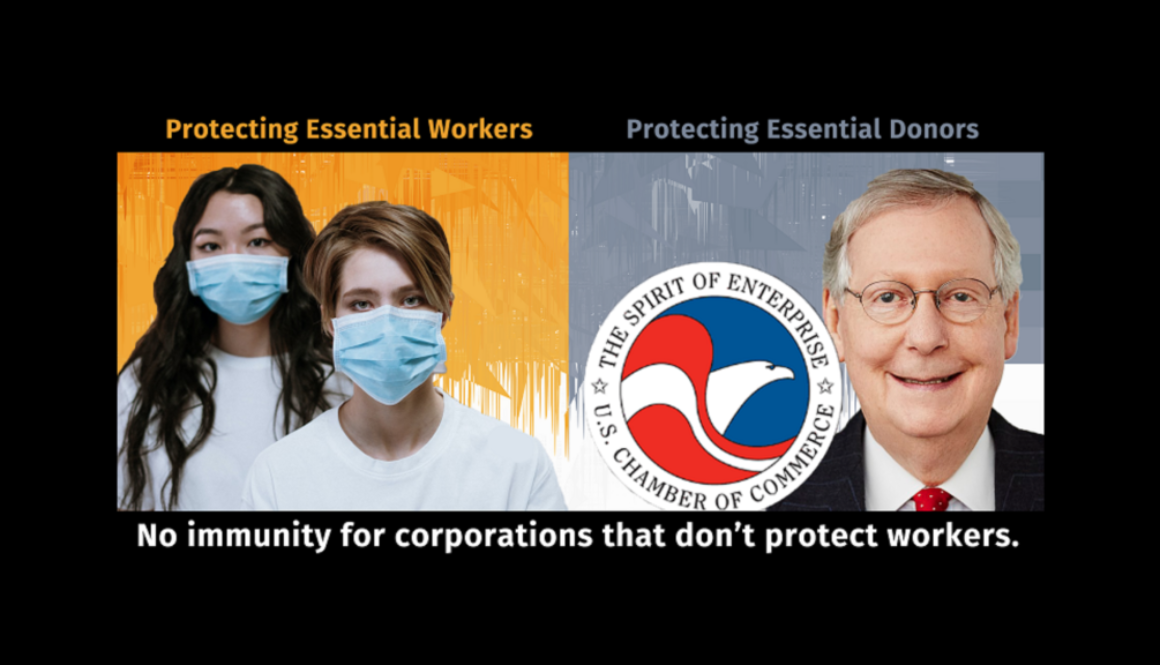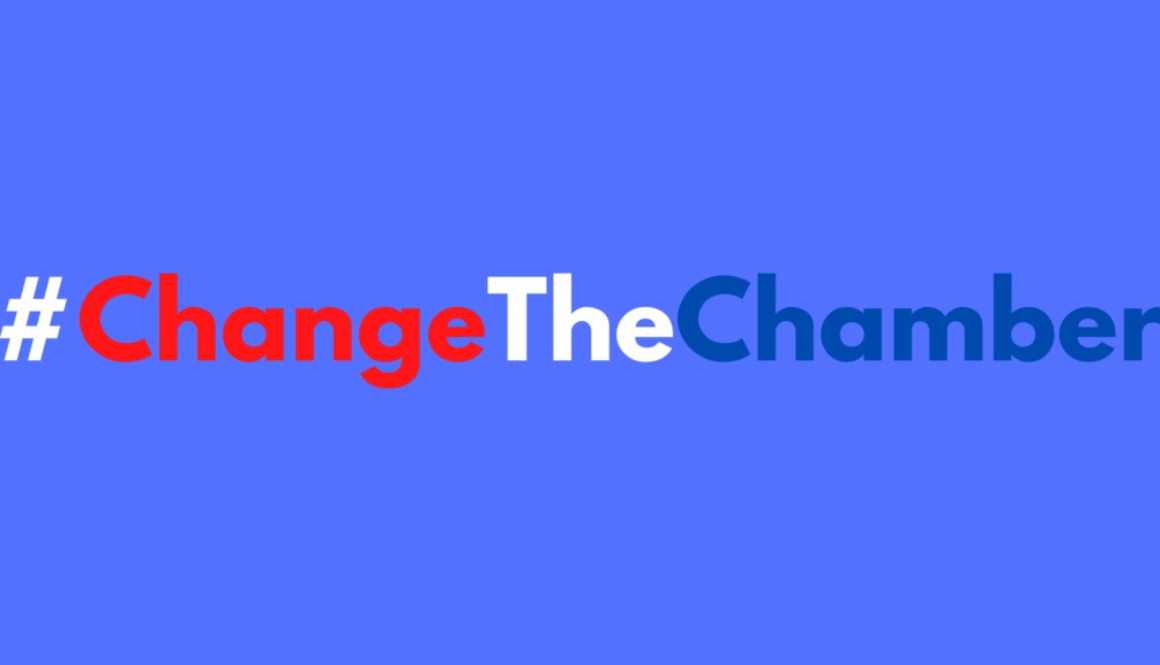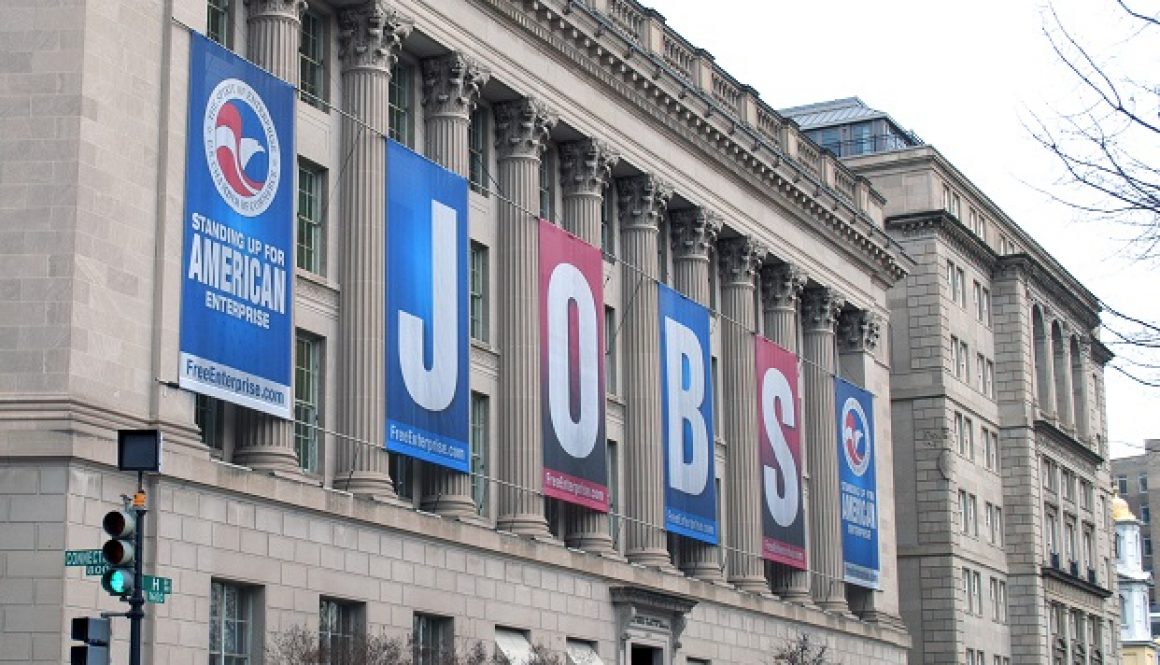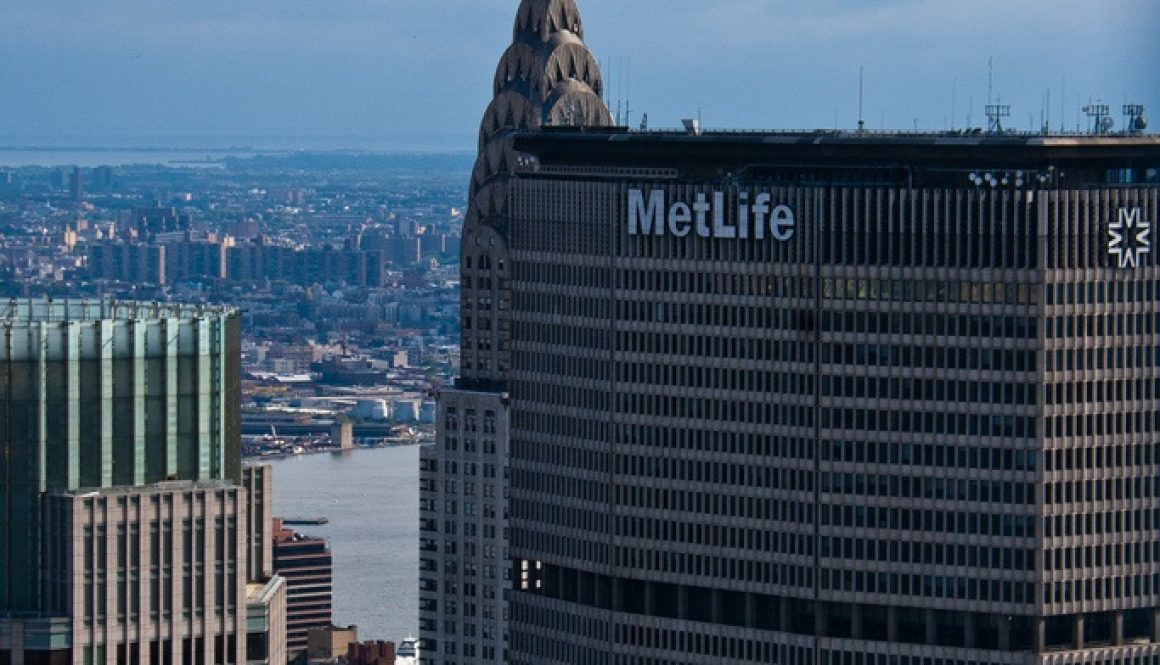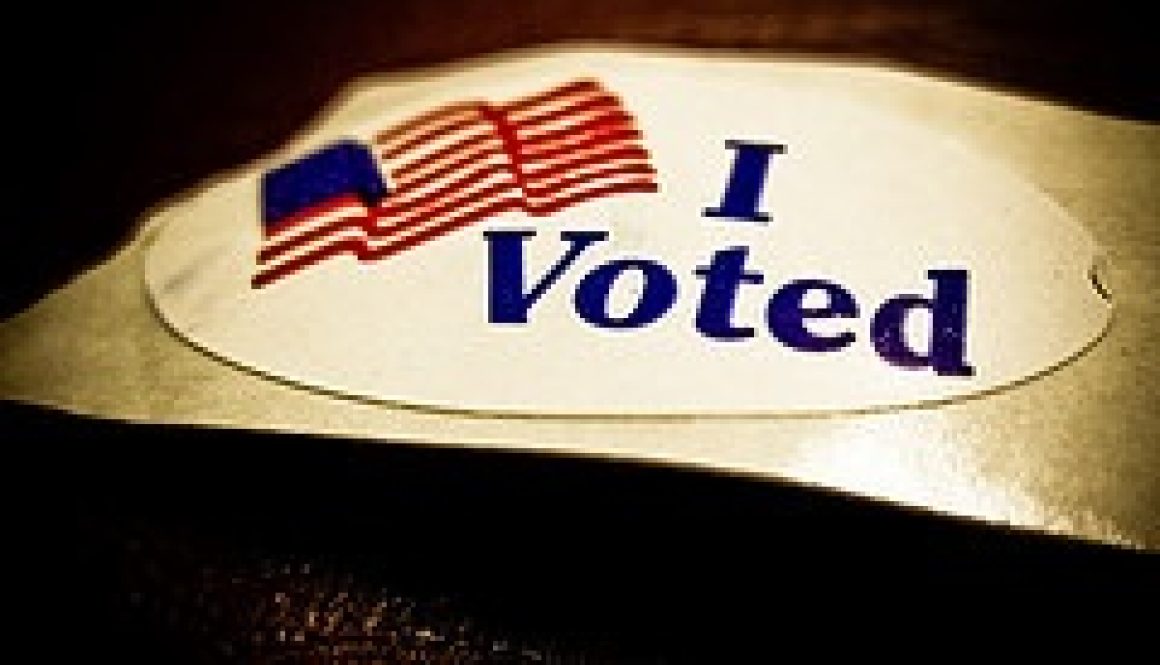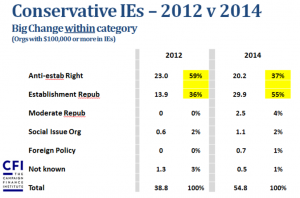As the COVID-19 pandemic exposes critical medical equipment shortages within our health system, the American Hospital Association, the American Medical Association and the American Nurses Association have called for the White House to immediately use of the Defense Production Act (DPA) to produce and distribute much needed Personal Protection Equipment (PPE) and ventilators. Yet the U.S. Chamber of Commerce, the largest lobbying spender in the country and trade association of many leading companies, has inexplicably lobbied the White House against the administration’s use of the DPA, which would enable the government to quickly accelerate the production of necessary medical equipment.
In response to the current COVID-19 pandemic, many companies are taking actions to meet these dangerous equipment shortages. Yet, many of these same companies belong to the Chamber and give it millions in payments that the Chamber then uses to lobby, as it has done here, against actively and comprehensively utilizing the DPA. Investors are asking many of these companies for expanded lobbying disclosure and highlighting reputational risks when the lobbying of trade associations contradicts company public positions at upcoming shareholder meetings, including Abbott Laboratories, AbbVie, Boeing, Citigroup, Honeywell and Pfizer.
The Chamber’s recent actions have received negative press scrutiny:
Trump is bending to big business during a pandemic, and Americans are worse off for it.
– Now This
Trump has refused to invoke the act because big business doesn’t want him to.
– New York Magazine
If enough member companies spoke out against the Chamber’s lobbying, it would have to stop… Google is also an active member of the Chamber, and the Chamber is blocking action that could marshal the resources of numerous companies to produce this equipment. If Google spoke out against the Chamber’s lobbying, it would create enormous pressure on the Chamber to shift course.
– Popular Information
Senators have called for “the Chamber to cease their lobbying efforts against measures to address the COVID-19 pandemic and place the economic and public health needs of hundreds of millions of American families above its members.” Additionally, major unions have condemned the Chamber’s actions. Finally, a report released by unions and advocacy groups calls on companies that are members of the Chamber to publicly call for the full use of the Defense Production Act.
Why is the Chamber, one of the most powerful lobbyists in Washington D.C., lobbying against the use of an act that gives broad authority to increase the manufacturing output of lifesaving equipment in a national emergency? While we wait for a definitive answer on their lobbying against the DPA, the Chamber has a long track record of lobbying against the broader interests of many of its corporate members.
For example, many of the Chambers corporate members individually support efforts to combat climate change and the Paris Climate Accord, yet the Chamber, on behalf of its members, has consistently lobbied against effective climate change regulations. A similar schism occurs on the issue of tobacco and public health, where many Chamber companies are committed to advancing patient health and well-being, yet the Chamber has worked to block global anti-smoking laws. On the issue of a minimum wage the Chamber appears to be out of sync with its members again. The Chamber claims to represent the interests of more than 3 million businesses and yet, while 80 percent of small business support raising the minimum wage, the Chamber is opposed to raising it.
These are just three examples where the Chamber has pushed for a harmful, deregulatory corporate agenda that goes against the public positions of many of its members and appears to be aligned only with the small number of companies that are its largest contributors. Do Chamber member companies really oppose the use of a law that is needed to address the acute shortage of personal protection equipment and ventilators that hospitals and front-line workers are facing? With the impact of the pandemic reaching every corner of America and across the globe, it’s incomprehensible that anyone — including corporate lobbyists for the Chamber — would block the use of employing every tool available to fight the disease and save as many lives as possible.
Investors Seek Disclosure of Lobbying at Citigroup, Pfizer, Abbott, Honeywell, Boeing and AbbVie, Highlighting Chamber Pandemic Lobbying Misalignment
Amidst this focus on the Chamber’s ongoing opposition to the DPA, shareholder proposals asking for lobbying disclosure will be going to vote at upcoming shareholder meetings at many companies that belong to the Chamber or sit on its board. These proposals at Citigroup, Pfizer, Abbott, Honeywell, Boeing and AbbVie ask the companies to disclose board oversight for lobbying and all federal and state lobbying expenditures, including disclosing all payments used by the Chamber for lobbying.
A major concern for investors is when indirect company lobbying through a company’s trade associations directly contradicts the company’s public positions.
On the one hand, these companies are working to speed production of ventilators and respirators to respond to COVID-19. Yet on the other, their trade association is blocking effective use of the DPA that is sorely needed to address the pandemic.
Exempt solicitations filed in support of the resolutions specifically highlight this contradiction and the reputational risk for companies from these types of trade association lobbying misalignments.
April 21 – Citigroup
Citigroup is providing $15 million in COVID-19 related relief efforts and supports “efforts to act swiftly, proactively and aggressively to mitigate the impacts of this situation.” The shareholder proposal filed by the New Economy Project notes that Citigroup supported the Paris Agreement on climate change, but the Chamber has worked to undermine it. The exempt solicitation states that “by funding a trade association’s lobbying, Citigroup is effectively endorsing its lobbying positions,” while also highlighting the pandemic as “another disturbing example of the conflict between Citigroup’s stated commitments and the U.S. Chamber of Commerce’s lobbying.”
April 23 – Pfizer
Pfizer is calling on the biopharmaceutical industry to join it in committing to unprecedented collaboration to combat COVID-19. The shareholder proposal filed by Oxfam notes that Pfizer sits on the boards of both the Chamber and the Pharmaceutical Research and Manufacturers of America (PhRMA), which together have spent over $1.9 billion on lobbying since 1998, yet fails to disclose how much of its Chamber and PhRMA payments are used for lobbying. Oxfam’s exempt solicitation notes that Pfizer believes in addressing climate change, but the Chamber undermined the Paris climate accord, thereby creating important misalignments on one of the defining issues of our time. It further notes a similar misalignment in the Chamber’s responses to the COVID-19 pandemic.
April 24 – Abbott Laboratories
Abbott is producing and distributing rapid point-of-care COVID-19 tests and “working 24/7 to make as many tests as we can and create the next round of needed tests.” However, it also serves on the Chamber board of directors. The shareholder proposal filed by the Unitarian Universalist Association (UUA) notes that Abbott believes in addressing climate change and supports good health, yet the Chamber undermined the Paris climate accord and has worked to block global antismoking laws. UUA’s exempt solicitation also notes that Abbott signed the Business Roundtable Statement (BRT) on the Purpose of the Corporation to be socially responsible, yet the BRT is lobbying to limit the right of shareholders to file resolutions.
April 27 – Honeywell
Honeywell has committed to increasing production of N95 respirators and other personal protection equipment in response to the current COVID-19 pandemic, yet also serves on the Chamber board of directors. The shareholder proposal filed by Mercy Investment Services notes that Honeywell is committed to reducing global greenhouse gases and signed an agreement to work with United Nations Environment to combat climate change, yet the Chamber undermined the Paris climate accord. Mercy’s exempt solicitation highlights the Chamber COVID-19 misalignment and points out that shareholders “face a trade association blind spot as Honeywell fails to disclose its trade association memberships.”
April 27 – Boeing
Boeing is assisting COVID-19 recovery and relief efforts, including manufacturing much needed face shields, yet is a member of the Chamber. The shareholder proposal filed by the Province of Saint Joseph of the Capuchin Order notes that “in the wake of the two 737 Max jet crashes, questions have been raised whether Boeing’s lobbying led to relaxed Federal Aviation Administration oversight, including ‘long-standing concerns about industry capture of the FAA, from lobbying by the aerospace industry—Boeing spends millions lobbying Congress and federal agencies each year—to the revolving door between the FAA and Boeing and other companies and lobbying groups in the industry.’” The exempt shareholder solicitation states that “Boeing needs to repair its tarnished reputation and can show its commitment to rehabilitating its image and culture by more fully disclosing its lobbying activities.”
May 8 – AbbVie
AbbVie is “collaborating with select health authorities and institutions globally on clinical research” and is donating $25 million to help support underserved communities and healthcare systems. The shareholder proposal filed by Zevin Asset Management notes that AbbVie is a member of the Chamber of Commerce, which has spent over $1.5 billion on lobbying since 1998, and sits on the board of the Pharmaceutical Research and Manufacturers of America (PhRMA), which spends millions lobbying against drug pricing measures. The exempt shareholder solicitation states that “AbbVie’s disclosure lags many of its peer group members which disclose the portion of trade association payments that are used for lobbying.”
Tell Corporate America to end the hypocrisy
If you own shares directly in these companies, you should vote in favor of these proposals, which asks the company to prepare an annual report on its lobbying activity so that shareholders- the true owners of the company- can assess the associated risk.
If you don’t own stock directly in these companies –or any other company where these shareholder resolutions are filed this year — but are worried about undisclosed political spending by corporations that is being used to influence our democracy, chances are you can have an impact through your 401(k) instead.
If you invest your retirement through BlackRock, State Street, Dimensional, Fidelity or Vanguard, you can vote with your dollars and tell the funds to support disclosure.
Note: This piece was first posted on the Corporate Reform Coalition website.

